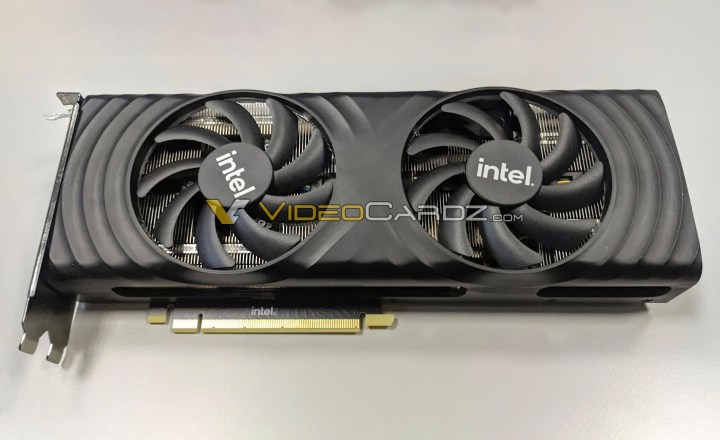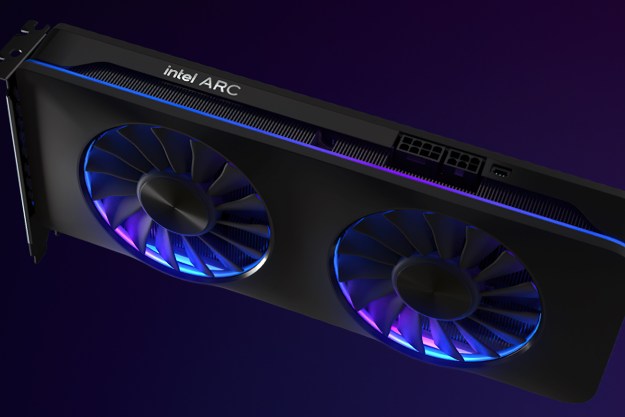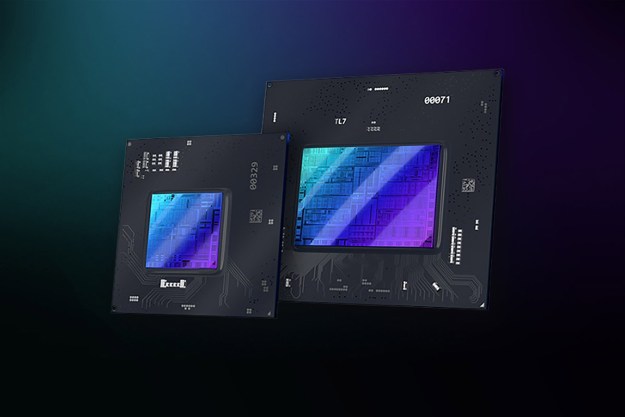If you’re still looking for good news about the release date of Intel’s Arc Alchemist discrete graphics cards, this probably isn’t what you were hoping for.
According to quotes coming from allegedly reliable sources, the GPUs may have very limited availability in the first quarter of 2022, and a proper launch may not happen until the second quarter.

The rumors come from YouTuber Moore’s Law Is Dead, who often shares quotes from inside sources when reporting on things like this. This time, he featured a lot of quotes in his latest video, ranking them from “Very High Confidence” to “High Confidence, Not Widespread Info” and “Mostly Confident.”
There are plenty of quotes to read, and Moore’s Law Is Dead notes that these are credible sources that were instrumental in leaking information that has later been proven true, such as Intel Raptor Lake rumors or photos of the engineering sample of Intel Arc Alchemist. Nevertheless, just like with any other leak, it’s best to take these with a hint of skepticism.
Sources that the YouTuber has referred to as highly reliable all seem to say the same thing: Intel has pushed Arc Alchemist to the second quarter of 2022, with one source saying that the latest release date for the high-end desktop version of the GPU may be in June. That’s months after what many users were initially hoping for. Some of the cards are said to begin sampling in March or April, but that’s not indicative of a consumer market release date.
Two of the sources claim that Intel will — once again — announce the graphics cards during a gaming convention before the GPUs officially hit the market. One of the quotes mentions PAX East, taking place April 21-24 this year. The other quote mentions that Alchemist will be raffled off during a gaming convention taking place in the second quarter of 2022, which is a more vague assumption and could mean a longer timeframe than PAX East.

Another thing seems to be clear based on these quotes: Intel will not release the high-end Arc Alchemist model for a while. It seems that we may first start seeing the low-end Arc Alchemist chip in some laptops, and this might happen during the first quarter of 2022. The desktop version, presumably along with the high-end graphics cards, seems unlikely to be launched before April.
The one bit of good news from Moore’s Law Is Dead is that the low-end models may offer good performance for the price. One quote states: “The low-end models are expected to make a mockery of low-end Nvidia pricing.”
Whether the quotes are to be believed or not is hard to say, as all of these statements are anonymous. On the other hand, all other signs have so far been pointing to various delays in the release of Intel Arc Alchemist. Intel has removed all traces of references to the first quarter of 2022 from its website, quietly burying the fact that it initially planned to release Arc during that time. We’ve heard rumors of possible delays for months now, so it seems that Intel may be having a hard time getting the Arc Alchemist release back on track.
Both Nvidia and AMD are planning to release refreshed versions of existing cards in the next few months. AMD is allegedly gearing up for Radeon RX 6X50XT series cards, and Nvidia is planning to release an RTX 3070 Ti with 16GB of memory. Therefore, when Intel Arc Alchemist finally releases, it will instantly be met with competition — which can only mean good things for the GPU market as a whole.
Editors' Recommendations
- Intel may fire the first shots in the next-gen GPU war
- Intel may be throwing away an important opportunity
- Intel surprise launched a new graphics card, but it doesn’t make any sense
- Intel’s next GPU just leaked, and it looks like a sub-$200 card worth buying
- Intel’s latest update improves gaming performance by up to 77%




